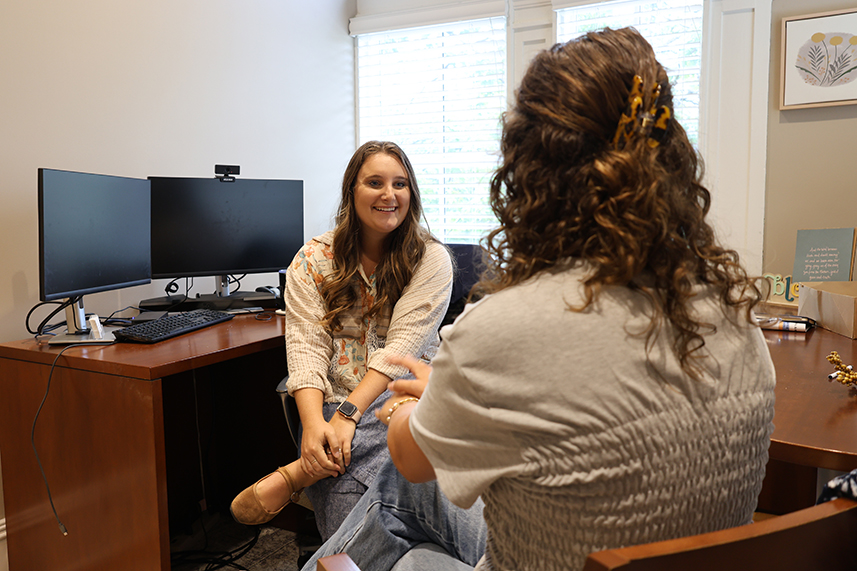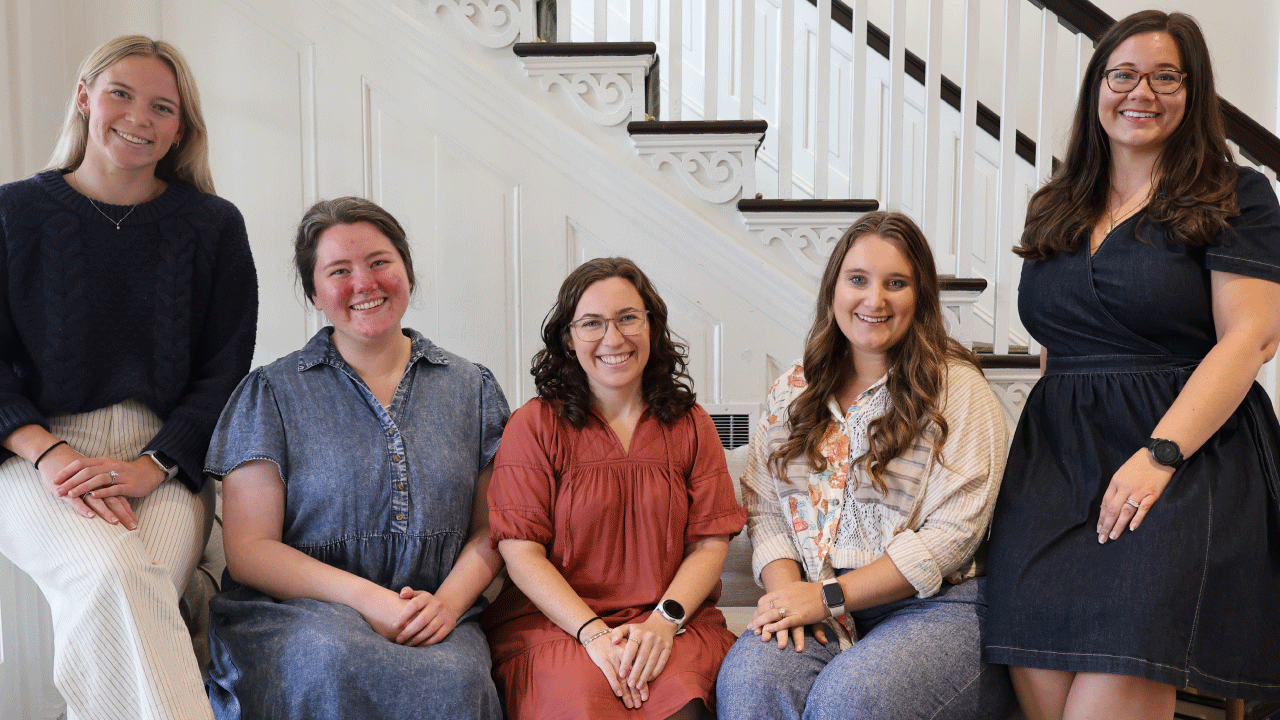content body
One of the benefits that Honors students enjoy during their time at Auburn University is access to two academic advisors: one rooted in the college of their major and one in the Honors College.
“This is not usually the benefit that students are focused on when they apply to Honors,” said the college’s director Laura Stevens, “but it is one that they grow to value a great deal. I hear often from our alumni that the extra layer of advising was so important to their academic success and their launch into their lives after college.”
Honors alumnus Thomas Foster exemplified this perspective recently when, looking back on his college years, he stated, “The Honors advising team was easily the most helpful academic resource I had during my time at Auburn.”
In 2024, the team was named the Outstanding Advising Program in 2024 at the Provost Academic Advising Awards. Honors students have provided some corroboration of the advising team’s success through their demonstrated demand for advising appointments.
During the 2024-25 academic year, the advising team held a total of 3,056 appointments with individual students, in addition to peer advising sessions and "Schedule Studio" consultations that were folded into the Honors Freshman Experience class. This demand far exceeds the annual advising meeting that the college requires of its approximately 2,200 students.
For the student experience
Why is the Honors academic advising so indispensable to the Honors student experience, and to what factors does the advising team attribute its success? Much has to do with the very broad and complex curricular map that Honors students collectively negotiate as they plan their paths to graduation.
“Honors students are extraordinarily multifaceted in their studies, often crossing multiple disciplines,” explained Academic Advisor Savannah Baker. "While the major advisor is best positioned to steer them through the optimal sequence of courses for that major, the Honors advisor is the one who can help them fit everything together."
Students’ comments on their advising experience align with Baker’s assessment.
“Having both a major advisor and an Honors advisor has made such a difference in my college experience,” said Emily Lunsford, a junior biomedical sciences major with a pre-med concentration. “My Honors advisor, Katie Martin, has been incredible at helping me figure out which Honors distinction I wanted to pursue and guiding me through which classes best fit with my major … at the same time, my major advisor makes sure I’m on track with my major requirements and long-term goals. Having both perspectives has given me so much confidence."
This pairing has helped Lunsford make the most of her undergraduate years.
“I feel supported academically,” she noted, “but am also encouraged to take advantage of opportunities I might not have considered on my own.”

A special approach
Honors advisors cited two other major factors in their work: the multidisciplinary scope of their advising and their holistic, student-centered approach.
“By advising students of all majors, Honors advisors are knowledgeable of support systems in all colleges and can help connect students accordingly,” commented Academic Advisor Emily Prim.
Because they are not mapping students’ degree plans onto just a few potential courses of study, Honors advisors organize their work around the individual student’s interests and goals.
As Baker noted, “I aim to understand students’ unique interests and explore how those passions intersect with their major requirements.” This approach “affords me the opportunity to help shape an Honors experience that is both meaningful and purposeful.”
Both the multidisciplinary range and the holistic approach position Honors advisors to play an especially important support role when students switch majors, bridging their transition between discipline-based advisors.
As Sean Connolly, an Honors junior who is pursuing psychology on the pre-med track, noted, “The most valuable part of Honors advising to me is a combination of our advisor’s interdisciplinary background, connection to students based on last name and the smaller cohort of Honors College students. The advisors are with students all four years regardless of whether they change their major, producing better and more intimate connections with the students they oversee.”
Spanning all majors requires much of the advising team, but it also adds much to their satisfaction with their work.
Academic Advisor Katie Martin summed up this perspective nicely: “For me, the beauty of Honors advising is seeing how the stories of so many students interconnect — across the university, in their careers, in their community and in their collective impact.”
This emphasis on connection — across the discipline-based colleges, between advisors and students and among the advisors — turns out to be a central factor in the success of Honors advising.
Suzanne Hunter, the Honors College’s associate director of academic affairs, has taken a collaborative approach to her leadership of the advisors, prioritizing teamwork as the advisors work together to serve the college’s students.
Asked about the secret to this group’s success, she praised the advisors whom she leads: “I’m incredibly proud of our advising team, who put our students at the center of everything we do. Through strong collaboration and a shared sense of purpose, they foster an environment where students feel supported, challenged and empowered. Their commitment to holistic development ensures that students are guided not only in their academic endeavors across all majors, but also in their professional and personal growth.”




